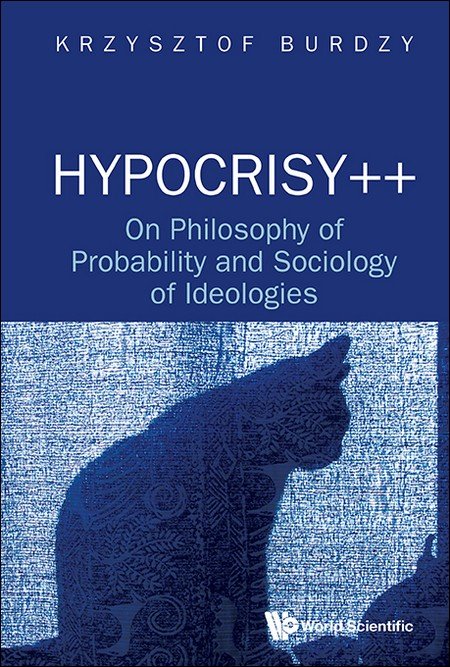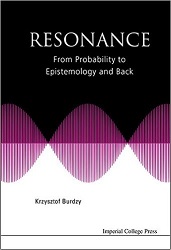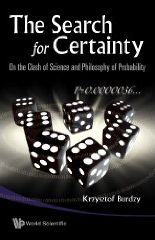Philosophy of probability

My latest book on foundations of probability,
On Philosophy of Probability and Sociology of Ideologies
is available at Amazon and at publisher's Web site.
From the publisher's Web site:
This book explores three central themes:
- A comprehensive critique of the most prominent philosophical theories of probability, highlighting their significant shortcomings.
- A new scientific theory of probability, supported by an innovative epistemological framework called "resonance," which addresses these flaws.
- A meta-analysis of the intellectual landscape that has allowed two flawed philosophical approaches to gain traction.
These ideas are not only applied to the philosophy of probability but also extended to a broader critique of other domains such as religion, political ideologies, and art criticism. Additionally, the book includes in-depth critical analyses of recent contributions to the philosophy of probability, with a particular focus on works by Lindley, and Diaconis and Skyrms.
This thought-provoking work challenges readers to rethink long-standing assumptions in both probability theory and intellectual discourse at large.
Contents: Introduction. Main Philosophies of Probability. Mathematical Methods of Probability and Statistics. Philosophy. Frequency Philosophy of Probability. Subjective Philosophy of Probability. Epistemology. Science. Science of Probability. Decision Making. Frequency Statistics. Bayesian Statistics. Hypocrisy++. Missing Schroedinger's Cat. Insular Ideological Communities. Latter Day Subjectivism. Utopia. Bibliography. Index.

My second book on foundations of probability, "Resonance: From Probability to Epistemology and Back", is available at Amazon and at publisher's Web site.
The back cover blurb:
"Resonance examines some building blocks of epistemology as a prelude to the careful analysis of the foundations of probability. The concept of resonance is introduced to shed light on the philosophical problems of induction, consciousness, intelligence and free will. The same concept is later applied to provide support for a new philosophical theory of probability.
Although based on existing ideas and theories, the epistemological concept of resonance is investigated for the first time in this book. The best-known philosophical theories of probability, frequency and subjective, are shown to be unrealistic and dissociated from the two main branches of statistics: frequency statistics and Bayesian statistics.
Written in an accessible style, this book can be enjoyed by philosophers, statisticians and mathematicians, and also by anyone looking to expand their understanding of the disciplines of epistemology and probability."
- Free preview:

My views on the philosophy of probability were originally presented in my first book on the subject, "The Search for Certainty. On the Clash of Science and Philosophy of Probability".
- Free preview: preface, contents and introduction (PDF, 191kb).
- Visit the book Web site at World Scientific and buy the book.
- The book is also available at Amazon.
- See Larry Wasserman's review of my book. The review contains a crystal clear summary of the main ideas in my book.
- The following quotes come from Adrew Gelman's
blog.
- Larry Wasserman: "I think this is an interesting and important book."
- Larry Wasserman: "Burdzy makes a convincing case that the philosophy of probability is a complete failure."
- Andrew Gelman: "Chris: I am in complete agreement with your claim that the theories of von Mises and de Finetti completely fail to describe what statisticians actually do."
- Christian Robert quotes my asertion that "the original theories of von Mises and de Finetti are completely unrelated to statistics" in his review of my book. He calls it "appealing" because he believes that "[...] their philosophical theories have not had a lasting impact on statistics."
- A.I. Dale writes in the Math Review (MR2510150) of the book: "[...] there is much to absorb, but the careful reader will find considerable food for thought here."
The video recording of my talk "The least interesting philosophical theory of probability ever" given at Math Lovers Forum at MSRI in May 2018.
The slides of the October 23, 2006, talk at the Department of Statistics, University of Washington, "De Finetti's ultimate failure": PowerPoint, PDF.
The slides of the October 13, 2008, talk at the Department of Statistics, University of Washington, "Philosophy of probability and its relationship (?) to statistics": PowerPoint, PDF.
The slides of the August 25, 2013, talk at the 59-th World Statistics Congress (Hong Kong) titled `Statistics and philosophy of probability - six degrees of sepration': PDF.
I find the following "new prisoner's paradox" and its follow-up dealing with some ethical questions entertaining.
An "insider trading
paradox"
is based on a similar probabilistic idea
but does not have much philosophical significance
- I consider it an interesting textbook example.